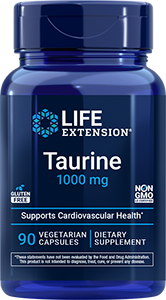
Newsletter
Newsletter
Higher Selenium Status Linked with Lower Mortality Risk During 17.3-Year Follow-Up

A study found a lower risk of all-cause mortality during 17.3 years of follow-up among men and women with high blood serum levels of selenoprotein P, which is one of the main proteins responsible for transporting selenium throughout the body.1 The findings were reported in the February 2024 issue of the European Journal of Epidemiology.
“Our study is the second largest population-based cohort study on the association of selenium status and mortality worldwide after the US-American National Health and Examination Survey and thus the largest study from Europe so far, where selenium supply is insufficient,” authors Ben Schöttker and colleagues wrote. “The associations of the selenoprotein P concentration with multiple major mortality outcomes might be explained by its essential role in selenium transport and hence its indirect anti-oxidative effects.”
The investigation included 7,186 male and female participants in the ongoing ESTHER study; they were aged 50 to 75 years at recruitment during 2000-2002. There were 2,126 deaths during a 17.3 follow-up period. Participants at the start of the study who were in the lowest one-third of selenoprotein P levels had a 35% greater adjusted risk of all-cause mortality compared with participants whose were among the top third.
Additionally, compared to those with the best selenium status, participants with the lowest levels of selenoprotein P:
- Had a 24% higher risk of mortality from cardiovascular disease
- Faced a 31% greater risk of cancer mortality
- Were more than twice the risk of respiratory and gastrointestinal disease mortality
- Were more likely to be male than female
What do we do with these findings? According to the study’s authors, the next step is clinical trials to evaluate the effects of selenium among people with low levels of selenoprotein P.
Products
Apply What You’ve Learned: Selenium
- Selenium is an essential trace element. Among other functions, it is needed for the formation of glutathione peroxidase, an important antioxidant enzyme.
- Up to one billion people worldwide are estimated to be selenium deficient.2 Low soil selenium concentrations and availability in some areas of the world result in food that fails to provide adequate amounts of this important mineral.3 Similarly, selenium uptake and accumulation are influenced by crop type. Many people’s vitamin and mineral regimens do not include selenium.1
- Blood testing for plasma or serum selenium can help determine whether selenium levels are sufficient.
- Other than obtaining selenium from food, selenium is available in such forms as Se-methyl L-selenocysteine, L-selenomethionine and sodium selenite.
References
- Schöttker B et al. Eur J Epidemiol. 2024 Feb;39(2):121-136.
- Kirichuk AA et al. J Trace Elem Med Biol. 2024 Mar 20:84:127439.
- Navarro-Alarcon M et al. Sci Total Environ. 2008 Aug 1;400(1-3):115-41.
Featured Life Extension Magazine® Article
Anticancer Properties of Vitamin D
By Martin Stein
Among vitamin D’s many roles is that of preventing abnormal cell growth that could become cancer. Vitamin D impedes cancer growth by arresting its cell cycle, promoting cancer cell apoptosis (programmed cell death), helping to block the formation of new blood vessels that deliver nutrients to cancer cells, and interfering with cancer cells’ ability to invade surrounding tissue and spread throughout the body.
Vitamin D deficiency has been defined by the World Medical Association as 25-hydroxyvitamin D blood levels of 20 nanograms per milliliter or less. Cancer patients have been found to have a higher rate of vitamin D deficiency than individuals who do not have the disease. Testing for 25-hydroxyvitgamin D levels can help guide the amount individuals need to add to their diets to help maintain good health.
Read Full Article
What's Hot
Health Concern
Study associates enzyme increase with lower cardiovascular mortality
An article published March 21, 2023, in Antioxidants documented an association between a lower risk of cardiovascular mortality and higher levels of the enzyme SIRT1 after four years of supplementation with coenzyme Q10 (CoQ10) and selenium in a clinical trial.

Cancer Adjuvant Therapy
Review integrative and novel therapies, including natural interventions and the off-label use of common drugs, which have potential value in the setting of adjuvant cancer care.
Related Life Extension Magazine® Articles

Selenium
Selenium protects against DNA damage, removes toxins, and maintains immune activity.

CoQ10 And Selenium Reduce Cardiovascular Death
Cardiovascular deaths were reduced by 50% in older adults taking selenium and CoQ10 supplements.
Life Extension Magazine® Issue Now Online
A remarkable number of healthy-longevity findings have been published over the past 18 months.





